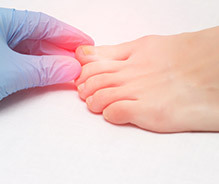Stretch marks are a common occurrence in both men and women and can affect any area of skin that has been stretched too rapidly. They can take years to fade, and many people now opt for stretch mark removal rather than having to live with them. But is rapid weight gain the only explanation for why stretch marks appear?
Cortisol is a hormone produced by the body. When too much is produced, it can have the effect of reducing the amount of collagen in the skin. Collagen is, of course, essential for making our skin supple and elastic, so if it is lacking, the skin will be less resistant to stretch marks.
We often associate stretch marks with pregnancy, and it is true that the majority of women will develop stretch marks to a greater or lesser extent during their pregnancy, particularly in the third trimester. It would be easy to think that weight gain is the obvious cause of stretch marks during this period.
This is not the only cause, however: in the last three months of pregnancy, the body produces hormones that cause the ligaments in the pelvis to soften in order to make giving birth easier. Unfortunately, these hormones also soften supportive fibres in the skin, increasing the risk of stretch marks appearing.
The next article will look at more causes of stretch marks.































